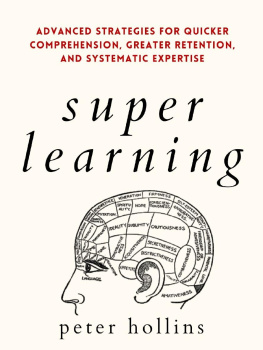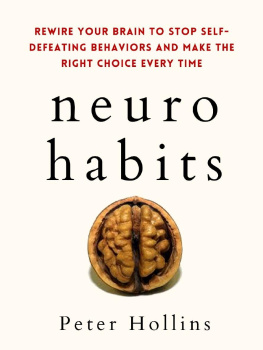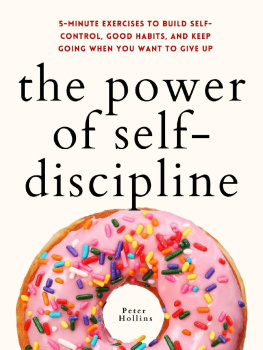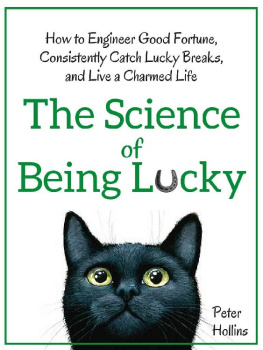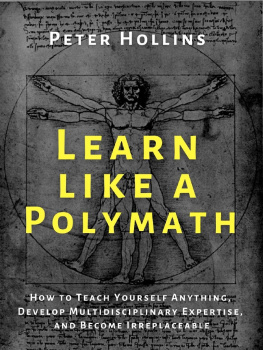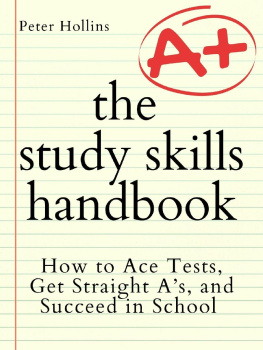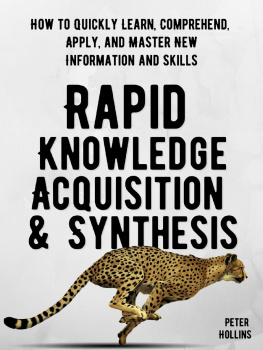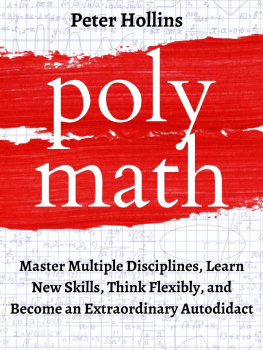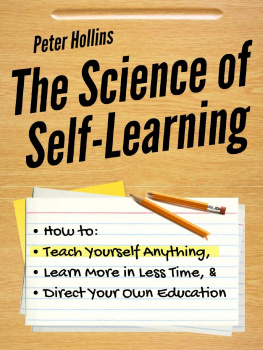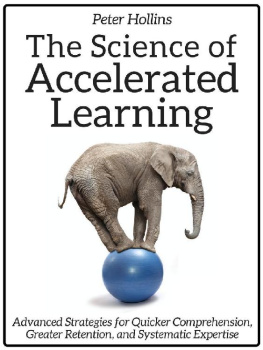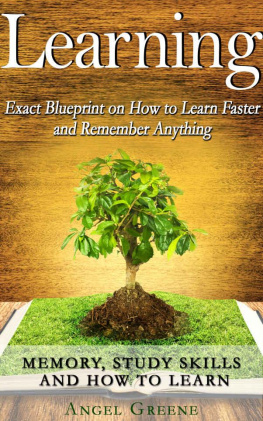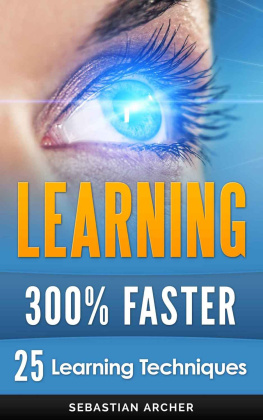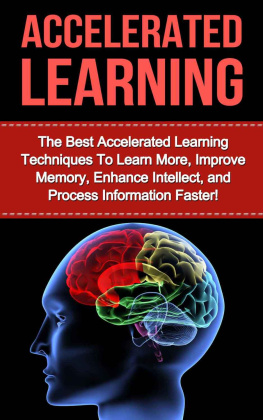Table of Contents
Super Learning:
Advanced Strategies for Quicker Comprehension, Greater Retention, and Systematic Expertise
By Peter Hollins,
Author and Researcher at petehollins.com

CLICK HERE for your FREE 14-PAGE MINIBOOK: Human Nature Decoded: 9 Surprising Psychology Studies That Will Change the Way You Think. > >
--Subconscious Triggers
-- Emotional Intelligence
-- Influencing and Analyzing People

Table of Contents
Table of Contents
Introduction
Chapter 1. Fertile Conditions to Learning
The Human Attention Span
Learning Over Short Bursts of Time
Concepts Before Facts, Understanding Before Memory
Aim to Be Frustrated (Yes, Really)
Chapter 2. Memory Retention
Forgetting
The Forgetting Curve
The study cycle
Retrieval Practice
Spaced Repetition
Cramming Best Practices
Chapter 3. Active Learning Techniques
Elaborative Interrogation
Feynman Technique
Interleaved Practice
Chapter 4. Make Learning Secondary
The Six Facets of Understanding
Problem-Based Learning
Gamification
Chapter 5: Teaching to Learn
The Learning Pyramid
The Protg Effect
Give Good Feedback
Deeper information Processing
Deeper Inquiry
The PQ4R Method
Chapter 6. Mistakes in Learning
Lazy Reading
Fixed Versus Growth: Whats the Right Mindset?
The Myth of Tailoring Learning Styles
Mind Styles Vs. Learning Styles
Taking Lazy Notes
Summary Guide
Introduction
Learning has never come easy for me, which explains my standing as a mediocre student from kindergarten to twelfth grade and through college.
Even my parents seemed to intuitively know how learning challenged me, as they started to tell me about my street smarts and how good I was with my hands. I assumed this was just so they could find something to praise me about, because they didnt have the opportunity to do so with my grades.
It was never something I struggled with or felt bad about like other kids might. I suppose some might have seen other people at the top of the class and become frustrated and jealous. I just felt that everyone had something to contribute in their own way and that grades werent necessarily a measure of my worth.
I know, thats pretty insightful for a child. But in many ways, it was also incredibly misguided.
It turns out I was right about grades not being important. Life is partially about whom you know, but once you get there, it starts becoming a meritocracy. The concept of learningthe ability to understand, recall, and use new knowledgewell, thats something that truly begins to matter and can make all the difference in your career, relationships, and happiness. In fact, it becomes the backbone of where you end up, though you might get a leg up on where you start.
If you can learn quickly, you can effectively walk the walk before anyone catches on that you were bluffing the entire time. You can discover opportunities you would never see if you were stuck unable to understand something. And you generally have the ability to steer your life in whatever direction you want because your ability to learn is your only barrier to entry!
This was never more apparent to me than at my first job. I had a coworker named John, and I started a few weeks before he did. It soon become clear that he had lied on his resume and faked his way through his interview, because he had no idea what his duties were supposed to be or how to use the industry-standard software that we were all supposed to be proficient in.
At first, I was angry and wanted to see justice done. But then a funny thing happenedhe was an immensely fast learner. He had Post-it notes all over his desk, had notepads full of notes, and he always seemed to be writing sets of three-step instructions for himself. It was impressive to see his drive toward learning, and within months, he was performing at right about my own level of proficiency with everything he had lacked before.
Sure, he may have faked his way in, but at this point, there was no practical difference between me and him. He had learned how to do our job in record time and stayed at the company for years afterward. You could call this a sobering epiphany for how I thought about the processes and value of learning.
Processes: It cant be that hard, and there must be tried and true systems people use to learn better. After all, the kids that had better grades than I did definitely werent all smarter than me, right?
Value: Wow, learning can unlock so many doors. I had no idea. It applies to way more than work and probably to my hobbies and daily life, too. Learning will get me where I want to be.
So what exactly is learning (not a technical definition)? Learning is how you create the life you want. Learning is the only way to create a better version of yourself. Learning is one of the most fundamental skills you can possess because if you dont have it, how will your existence change or improve?
Welcome to accelerated learning, where you can finally learn how to learn.
Chapter 1. Fertile Conditions to Learning
How do we learn?
It seems like such a simple question, but decades of scientific literature tend to disagree with that notion. We may simply consider learning an activity we just started engaging in as babies with no preparation. In our school years, we were the receptacles for a constant flow of information and experiences. And in most traditional settings, instructors measured how well we learned by how well we repeated the information back to them. We had no choice in the matter and simply went along with what was presented to us.
This data accumulation and regurgitation almost suggest that learning is an automated process that we can only monitor, not control. In truth, there are factors, limitations, and conditions that affect our ability to learn. Understanding these elements can help you avoid mistakes and accelerate your learning. This book uses scientific principles and methods that will help you learn in a way that works best for you.
All mental activities, including learning, are influenced by internal and external factors and conditions. Some factors we can control; others we have to overcome or work around. This first chapter discusses the scientific principles that drive our learning abilities and some of the best practices we can use to expand learning capacity. In other words, we must create fertile conditions for learning; otherwise, we are sabotaging ourselves.
You wouldnt try to learn to ski in a desert, would you?
The Human Attention Span
One of the first conditions to learning you must take into account is your attention span. Since 2006, the nonprofit group Technology, Entertainment and Designuniversally known as TEDhas produced a series of online videos featuring influential speakers and leaders from all walks of business and life. TED Talks have become a viral source of sharing ideas and spreading inspiration.
A big key to the success of TED Talks is their brevity: all of them are capped at 18 minutes. TED curator Chris Anderson explained, It is long enough to be serious and short enough to hold peoples attention.... By forcing speakers who are used to going on for 45 minutes to bring it down to 18, you get them to really think about what they want to say. What is the key point they want to communicate?

